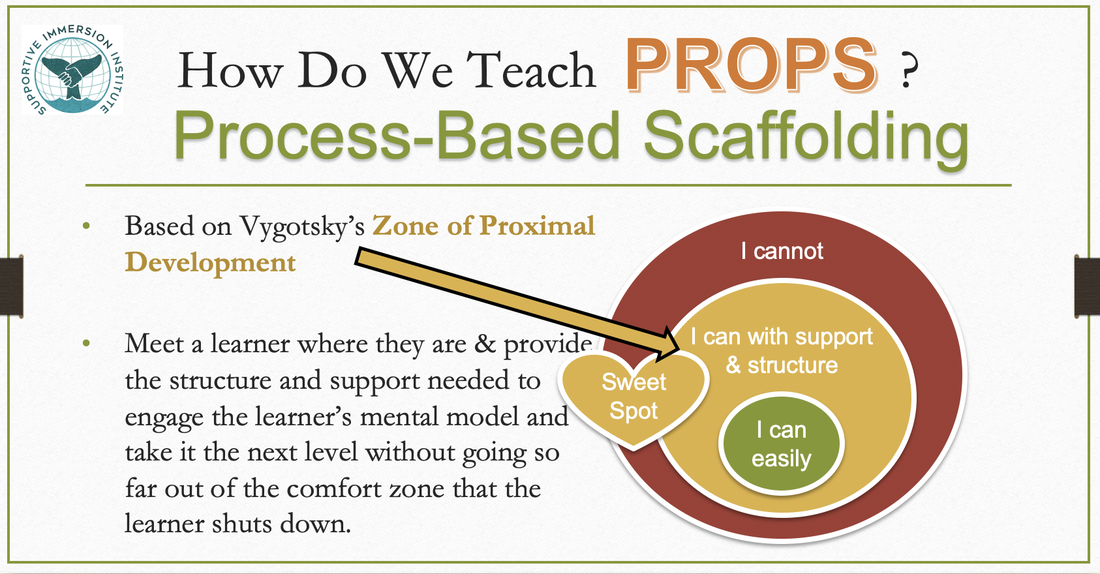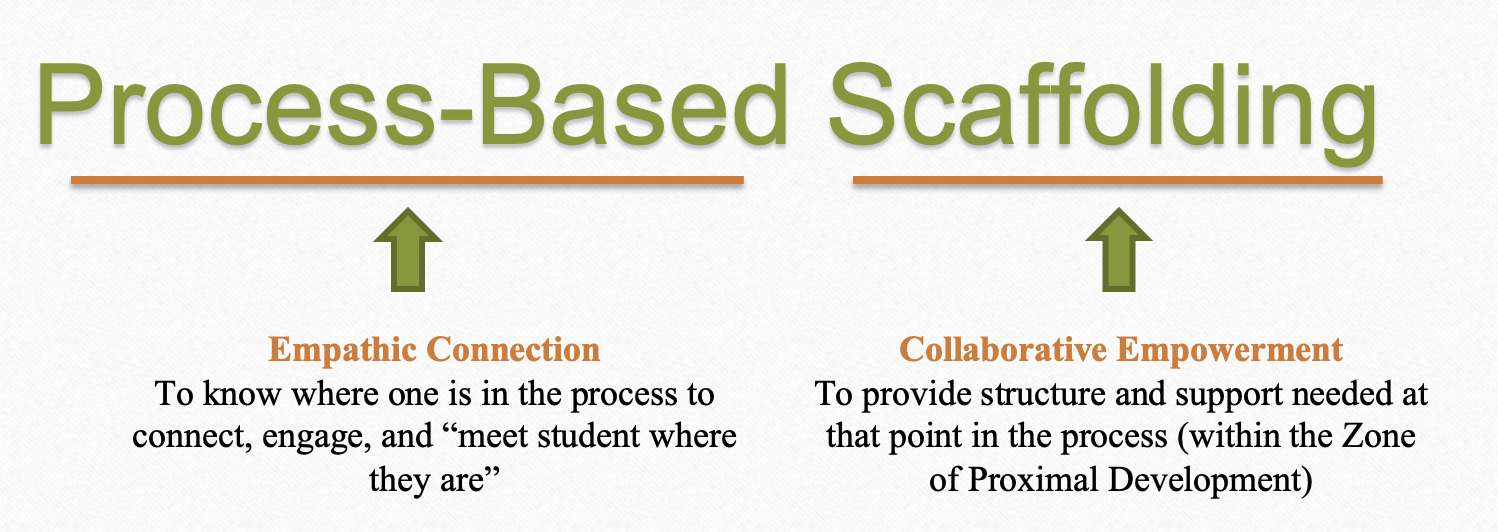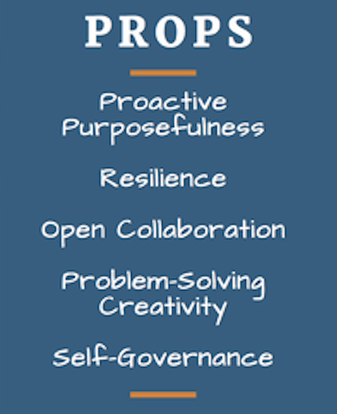|
by Dr. Heather Tracy, Ed.D. In other words, the Process-Based part of PBS connects with our students and figures out where they are in the learning process, which mental models they have created, and the Scaffolding part of PBS determines what kind of structure and support students need in order to collaboratively engage in a novel learning experience that challenges and expands previous mental models. This is empowered learning. Once we know where our students are (empathic connection), facilitators can design the experiences that structure and support a student to engage in more complex ways of interacting with a problem or issue at hand. This is collaborative empowerment. We provide the learning experience that can empower a student to take on the complex perspectives to solve real-world and relevant problems. So why is this helpful? Oftentimes, facilitators who are overly focused on structure can be rigid and miss opportunities to empathically connect to meet a student where they are to facilitate engagement in learning. On the flip side, facilitators who are overly empathic can over-accommodate and therefore miss opportunities to structure learning experiences that push learners outside of their comfort zones enough to actually grow into more complex learners and problem-solvers. Finding a balance between empathy and scaffolding can create the most rewarding growth and learning experiences. This not only helps our students grow, but we too (as facilitators) grow.
0 Comments
Subtitles coming soon but if your Spanish is good enough, check out Dr. Danny Recio's TedTalk in Costa Rica about Ecosystems of Learning: by Dr. Heather Tracy, Ed.D. We hear it every day: School just didn't work for ___. Our child is bright, curious, and wants to understand his/her self better. There just isn't room for that in today's schools. Why has our educational system evolved so much more slowly than every other field in the Information Age?
And yet... they struggle. Resilience is a key word today because depsite a plethora of opportunities, our kids are struggling to see how they can make it in this world. They need hope. They need 21st Century skills - the skills that many schools are not facilitating. Based on research incorporating 21st Century Skills, systems thinking, and an analysis of cultural trends affecting the Information Age, PROPS is Supportive Immersion's answer to the skill set that today's youth need.
Contact us today if you want to learn more about how PROPS can be incorporated into the development of your parenting, educational, or therapeutic processes.
|
SuIm TEAMAll of us here at the SI Institute look forward to hearing your thoughts on our posts. Archives
June 2022
Categories
All
|



 RSS Feed
RSS Feed